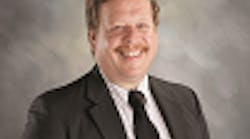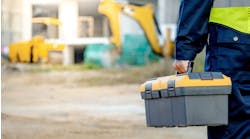Just like many late-middle-aged children, I had to empty out my mom, Dorothy Montague's house a couple of weeks ago after she died last fall. This included finding a new home for more than 20 boxes of books, though I was quickly reminded that pretty much all local libraries everywhere are already bursting at the seams and have no room for once-precious personal collections.
Anyway, before reluctantly making another trip to the nearby solid waste transfer station, I checked with two of my mom's friends, Linda Mussmann and Claudia Bruce, who run Time & Space Ltd., a 30-year-old, non-profit, multi-function arts organization in Hudson, N.Y., itself a former whaling town about 90 miles upriver. Located in a cavernous, former commercial bakery, TSL has many industrial-sized spaces, but may be best-known as one of the first venues where visitors could attend live, closed-circuit TV broadcasts of national and international opera and ballet performances, which my folks often attended, and have become popular in many other theaters across the U.S.
I asked Mussmann and Bruce if they knew someone who might take my parents' books, and it turned out they could do it because they recently opened a bookstore in several rooms in TSL's basement. Problem solved, but it was actually no coincidence because TSL specializes in flexibility and modularity as well as nimbleness and speed, and reaching out to and serving its community. I've only been there a few times myself, but its performance, gallery, yoga/dance, film production and other spaces change all the time. It's as if the whole building and even its parking lot is one big stage that's continually getting reset, which I'm slowly realizing may be the whole point.
Even COVID-19 didn't put TSL out of business. Sure, like almost all businesses and cultural venues, its attendance plummeted to near zero for much of the past two years. However, Bruce and Mussmann and the rest of TSL's team simply shifted gears, and gave away 6,000 meals to Hudson residents and other community members isolated during the pandemic. I like to think that I'm all about what's possible, but TSL proves it all the time.
Of course, everyone was derailed by COVID-19, and many people and organizations continue to be hammered by viral sub-variants, job dislocations, staffing shortages and ongoing supply chain issues—now compounded by Russia's recent invasion of Ukraine.
However, TSL's agility is a great example of all the innovators worldwide, whose creative responses made the pandemic easier to bear. However, it's more than that because this imaginative spirit can be used for any purpose, and exercising just makes it stronger.
Granted, TSL isn't rearranging complex process control and automation systems and software, but I'm certain they'd do it or something similar if it served an artistic purpose or helped their community. The point is that creativity can be applied in any endeavor or environment, even apparently set-in-stone (or maybe just inertia-bound) process industry applications and facilities. It just requires looking around, assessing the local situation, and seeking chances to make it better.
I'm know Control readers are already well-aware of this because most of our stories have somebody applying and testing each proposed innovation in a small, non-critical corner of their plant before proving them and scaling up. Frankly, I can't escape it because in this week's PBS broadcast of the latest Ken Burns' documentary, Benjamin Franklin, we're reminded that he continuously came up with inventions, but refused to patent them because he viewed his ideas as payback for earlier innovations that benefited him.
Of course, I'm not saying you have to go up the Hudson River to visit TSL. My folks ran across them by coincidence, which means there's a good chance there's a similar organization or individuals close to wherever you are. For example, in a previous column, I remember learning there are hundreds of kids museums nationwide. As I've also said before, you just have to look around.






